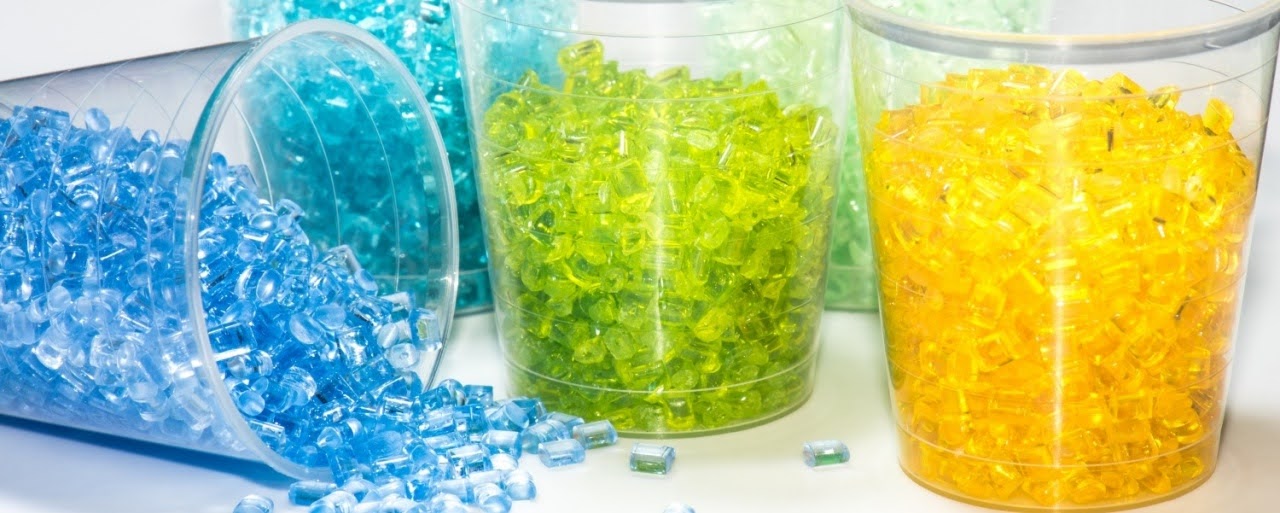
With a wide range of material with different degrees of Shore hardness, color, and radiopacity – tailored to your specific needs.
PEBAX Nylon | Tungsten | Hytrel | Kraton (TPE) | Tecoflex | Tecothane |
Polyurethane (TPU) Pellethane | Polyblend | Polyethylene (HDPE, MDPE, LDPE & LLDPE) |
Polyolefins | ChronoPrene | Radiopaque | Besno Nylon | PET | Polycarbonate | Custom Compounds
Medical-Grade Pebax® Tubing Options
We take a fully customized approach to your Pebax® medical tubing needs. We utilize all types of Pebax® thermoplastic elastomers to form a medical grade tube that meets all required specifications. This includes blending Pebax® with other materials to achieve truly custom medical-grade Pebax® tubing. We offer the following Pebax® medical tubing grades:
- 25D – Pebax®2533 SA 01 MED
- 35D – Pebax®3533 SA 01 MED
- 40D – Pebax®4033 SA 01 MED
- 45D – Pebax®4533 SA 01 MED
- 55D – Pebax®5533 SA 01 MED
- 63D – Pebax®6333 SA 01 MED
- 70D – Pebax®7033 SA 01 MED
- 72D – Pebax®7233 SA 01 MED
- 74D – Pebax®7433 SA 01 MED
Contact us for more information regarding custom medical-grade Pebax® tubing and Pebax® catheters, or request a quote for further pricing details today. One Medical Extrusion is your premier supplier of custom Pebax® medical tubing products.
Pebax® is a registered trademark of Arkema, Inc.
Polycarbonate Tubing for Medical Applications
Polycarbonate tubing is commonly used in medical tubing applications that require excellent optical clarity, high impact resistance, and high light transmission (88%). It is also suitable for electrical applications thanks to its high heat resistance and dielectric constant of 2.9.
Properties of Polycarbonate Tubing
Polycarbonate tubing is rigid, with good toughness. It can undergo large plastic deformations without cracking or breaking. It is comparable to acrylic tubing for its optical clarity but is far less brittle. Polycarbonate tubing can also be compared to PETG (polyethylene terephthalate glycol), also known as polyester. Both materials have similar optical clarity and light transmission.
Extruded polycarbonate tubing is suitable for many secondary processes, such as pad printing, forming, machining, overmolding, and adhesive or solvent bonding.
Polycarbonate is a lightweight, amorphous polymer that does not have a defined melting point, but rather a softening zone that begins at 297°F (147°C). Polycarbonate tubing is USP Class VI, as well as ISO 10993 compliant, and may be sterilized by steam.
Hytrel® Tubing for Medical Applications
Hytrel® is a specialty thermoplastic polyester-polyether copolymer manufactured by DuPont. We offer Hytrel® tubing for catheters and other medical applications
Hytrel® tubing is highly versatile, offering a wide range of grades having the flexibility of rubber through high stiffness and hardness up to 82D. Hytrel® tubing exhibits excellent toughness and resilience, as well as high resistance to creep, impact, and flex fatigue. It remains flexible at low temperatures and is resistant to many chemicals, oils, and solvents. Hytrel® tubing also retains its beneficial properties at very high temperatures.
Hytrel® tubing is available in a wide range of durometers and is ideal for medical applications that require a balance of flexibility and toughness, such as medical balloons for tubing, catheter shafts, and catheter tips.
Polyethylene Medical Tubing
High-density (HDPE), low-density (LDPE), and linear low-density polyethylene (LLDPE) are among the common PE polymers used for medical applications. Polyethylene polymers are lightweight, chemically inert, and impermeable, making them ideal for catheter tubing as well as for packaging materials, such as coil hoops.
PE is flexible, and can withstand repeated flexing over long periods; semi-rigid varieties are also available. The material offers a low coefficient of friction and is highly crack-resistant. Polyethylene is a chemically compatible and cost-effective polymer for catheter tubing and other medical products.
Typical applications for Polyethylene include dilators and sheaths:
- HDPE Medical Extrusion
- HDPE/LDPE Medical Extrusion
- LDPE Medical Extrusion
- LLDPE Medical Extrusion
Chronoprene® Thermoplastic Elastomer Medical Tubing
Chronoprene® is a unique thermoplastic elastomer tubing product used in the medical device industry due to its combination of high elongation, high flexural modulus, and tensile strength. It is significantly less permeable than silicone, yet is heat-sealable, bondable, and formable. Chronoprene® can be sterilized by radiation or ETO and is abrasion resistant and UV stable.
Custom Chronoprene® Thermoplastic Elastomer Medical Tubing Advantages
Chronoprene® is available in hardnesses from 5A to 75A. We can extrude Chronoprene® to precise I.D., O.D., and wall dimensions. It is excellent for very low durometer applications, such as catheter outer shafts (for added flexibility) or in occlusion balloons.
With ultimate elongation over 1500%, the material properties of Chronoprene® elastomeric resins enable novel applications and allow device designers to overcome the limitations of traditional materials. Additional Chronoprene® advantages include:
- Can expand and hold pressures
- Advantage over silicon (silicon is thermoset material, Chronoprene is thermoplastic)
- Clarity- translucent
- Able to bond to high performing balloon tubing
- Chronoprene® is softer in durameter (down to 5A)
Polypropylene Tubing & Extrusions for Medical Applications
Polypropylene is a lightweight thermoplastic resin that exhibits excellent surface rigidity. It has a low glass transition temperature and a low coefficient of friction. The material is a versatile, cost-effective alternative to fluoropolymers and other engineered resins.
Polypropylene tubing offers high chemical resistance and dimensional stability. It can be compounded with radiopaque additives for better visibility and can be readily welded. Polypropylene tubing also provides high heat tolerance (over 212°F).
Examples of catheter applications that utilize polypropylene tubing include dilators and overmolded luer fittings.
Nylon 12 Tubing for Medical Applications
Nylon is a thermoplastic material made of repeating units linked by amide bonds; it is frequently referred to as polyamide (PA). Nylon polyamide tubing is a strong, lightweight nylon extrusion product that has excellent abrasion resistance, with the added benefit of crush and cracking resistance. Nylon 12 tubing also supports a Shore D Hardness rating of 72, which provides tear and puncture resistance. This nylon catheter product also features excellent resistance to flexural fatigue, tube vibration, and movement. Our nylon extrusion products also have a high bend radius for resistance to kinking and low moisture absorption for resistance to swelling due to water.
Nylon Catheters for Medical Applications
Nylon was the first commercially successful synthetic polymer, and Nylon 12 tubing has proven especially useful for numerous medical applications. Nylon catheter tubing is ideal for use as medical tubing because it is lightweight, corrosion and abrasion resistant, and can withstand repeated stress over extended periods.
Polyamide tubing also exhibits excellent resistance to high heat and pressure. Nylon resins can be extruded in thin sections, and are common materials used in catheter shafts due to high stiffness. Nylon 12 tubing is thermally bondable with other polymers used in catheter constructions.
Typical medical applications for nylon extrusion materials include catheter shafts and balloon tubing.
Unique Properties of Nylon Catheter Medical Tubing
Nylon is well suited as a balloon material due to its high-pressure holding capacity in thin-walled sections. Nylon extrusion is ideal for balloon applications which require more compliance than PET balloons offer. Nylon absorbs water, so caution should be used when designing catheters requiring high precision tolerances and dimensional stability at various levels of atmospheric moisture content. Other beneficial features of nylon medical tubing, include:
- Excellent abrasion resistance
- Lightweight
- Strong
- Crush & cracking resistant
- Tear & puncture resistance
- Flexural fatigue resistant
- Reduced tube vibration & movement
- Nylon 12 Tubing Variations
- The Nylon 12 tubing family includes many variations that are ideal for medical applications, including:
Rilsan® Aesno Med
This polyamide tubing product is easily processed and has excellent resistance to chemicals. Rilsan® also features high dimensional stability and low density. The working temperature for this nylon medical tubing product is 40° to 266° F.
Grilamid®
This nylon 12 tubing product is resistant to chemicals and stress cracking, and is extremely tough even at low temperatures. It also offers low water absorption and high heat deflection.
Vestamid®
This nylon catheter product provides minimal water absorption and has extremely high impact resistance, even below freezing points. Vestamid® also provides excellent abrasion and fatigue resistance.
Polyblend
PolyBlend is a family of exceptionally soft, aromatic polyurethane elastomeric alloys, which can be used as a substitute for natural rubber or latex in many applications.These polymers encompass unique characteristics such as low flexural modulus, moderate tensile strength, and high elongation, in addition to allowing for a high draw-down ratio due to its superior melt strength and chemical integrity.PolyBlend can be processed on conventional extrusion or injection molding equipment and is available in hardnesses ranging from 45 Shore A to 80 Shore A.
NEUSoft
NEUSoft™ Polymers are available in standard durometers from 42A to 73A with options to extend the performance through customization to desired specifications.
Carbothane™ TPU
Carbothane™ is a family of aliphatic and aromatic, polycarbonate-based thermoplastic polyurethanes (TPUs) that are available in a wide range of hardnesses, colors, and radiopacifiers. If your application requires flexibility, Carbothane TPU is a premier product with elevated performance properties such as resistance to bodily fluids, good oxidative and biocompatible properties. This medical TPU may be suitable for long-term implantation applications. We offer a unique capability to fill Carbothane TPUs with radiopacifiers along with the ability to custom color match to your specific application needs.
Tecoflex™ TPU
Tecoflex™ aliphatic polyether-based thermoplastic polyurethanes (TPUs) are available in a variety of hardnesses, colors and radiopacifier formulations. Lubrizol offers a unique capability to fill Tecoflex TPUs with radiopacifiers along with the ability to custom color match to your specific application needs.
Benefits
- Manufactured using multiple processes: extrusion, injection molding and solution
- Offers an inherent ultraviolet (UV) stability that resists yellowing by aging
- Can be color-matched
Pellethane® TPU
Pellethane® thermoplastic polyurethanes (TPUs) offer a wide range of properties for medical and healthcare products. These medical grade polymers are available as aromatic polyether and polyesters and are known for their flexibility and wide range of hardnesses. Pellethane TPUs are ideal for a variety of medical applications including tubing, catheters, and other short-term uses.
